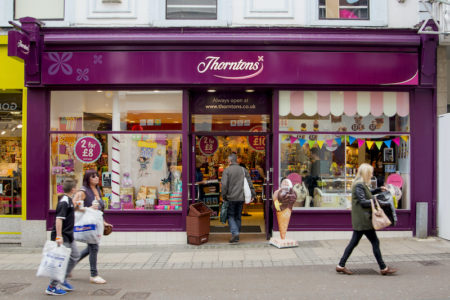Guest Blog: Lidl and Tony’s Chocolonely point the way for how to deliver sustainable cocoa

Who grows my food, are they paid fairly, and do they use eco-friendly farming methods? These are some of the questions being asked by conscious consumers as the COP26 global climate summit in Glasgow this month brings issues of sustainability to the foreground.
According to research from GlobeScan Radar, people around the world are increasingly changing their purchasing choices in an effort to make a difference on issues they care about. What’s more, just over three quarters of consumers now say they believe they can influence how responsibly a company behaves through their shopping choices.
Addressing this topic – with a particular focus on cocoa supply chains – Sustainable Brands hosted a webinar this with Fairtrade, Lidl, and Tony’s Chocolonely.
By engaging with issues of sustainability, chocolate companies can show their customers they share their concerns and are making responsible commitments that are good for both people and planet.
Increased appetite for fairly-sourced chocolate is also reflected in sales of Fairtrade cocoa, which had a strong year in international consumer markets, with more brands adding the label to their products. Austria, Belgium, Italy and the US are all examples of markets with strong growth in sales of Fairtrade cocoa products in 2020.
Tony’s Chocolonely has been part of that growth – with worldwide sales growing year over year. Paul Schoenmakers, Head of Impact at Tony’s Chocolonely thinks the trend is here to stay. ‘There’s definitely momentum growing and we’re moving in the right way. Personally, I really believe in change and I can see the change happening – we just need to accelerate it.’
In fact, brands like Tony’s Chocolonely as well as Lidl are continuing to deliver more for their cocoa farmers. In partnership with Fairtrade International, both companies have developed unique schemes that use Fairtrade as the base and build up towards a living income.
‘Together with Fairtrade, we placed the living income reference price (LIRP) as the benchmark in the cocoa industry,’ said Schoenmakers. ‘Since then, Ben and Jerry’s, retailers like Albert Heijn in the Netherlands as well as REWE and Aldi in Germany all committed to pay the living income reference price. The LIRP model, including its references and supporting research, is open to anyone to use for themselves. So other companies can refer to that and also start paying a higher price.’
Lidl, the German discounter that operates globally, launched their Way to Go! Chocolate bars in the US last year. Speaking about the launch, Stefan Schwarz, Executive Vice President of Purchasing at Lidl US, commented, ‘Lidl is committed to investing in products and business models that deliver greater returns to people working in the supply chain, and this is especially important in the cocoa industry. By designing and launching the first private label chocolate bar with the objective of directly supporting workers, small-scale farmers and local communities, we are taking another important step in this direction. We are grateful for the support of our partners at Fairtrade, who help make innovative programs like Way To Go! possible.’
Supply chains can be long and complicated. Having resources in the region where products are grown make it easier to develop sustainability measures. Fairtrade Africa operates as regional offices across the continent to enable partnerships, like those with Lidl and Tony’s Chocolonely, become a reality.
Anne-Marie Yao, Regional Cocoa Manager for Fairtrade Africa, values these connections: ‘Through Fairtrade, companies access a network of highly skilled and organised farmers who are equipped to build strong communities over the long-term. Businesses also benefit from our tailored approaches that help them reach their social and environmental goals. At the same time, cocoa co-operatives earn stable prices, develop their businesses and communities to tackle the issues most important to them, and plan for their futures.’
The public appetite for sustainably produced food continues to grow as shoppers seek new ways to live out their values. This creates opportunities for brands and retailers to do things completely differently and meet consumer demand, while creating positive brand impact.
With growth like this, more global brands will be looking at how to create sustainable supply chains as well as deliver what shoppers are increasingly wanting.
– By Mary Linnell-Simmons, Director of Marketing & External Relations at Fairtrade America



